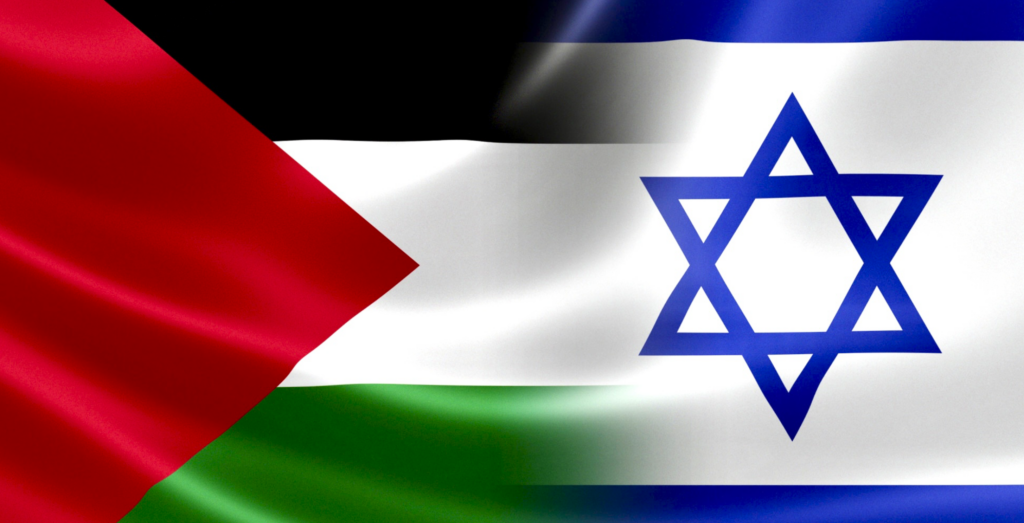
The history of modern Israel and Palestine is not just a story of land, security and diplomacy.
It is also a story of narratives: Who gets to define reality, whose pain counts, and whose voice carries weight in the global conversation?
For decades, the pro-Israel lobby has worked tirelessly to frame Israel as the righteous, peace-seeking country battling unreasonable and violence-prone Palestinians and Arabs more generally.
Key to that is portraying Israel as relatable, with its adversaries as inanimate obstacles to peace.[1]
This strategy has often succeeded in shaping headlines and policymaking circles, at least in the short term. But beneath the surface, its costs are mounting.
Each act of silencing—whether it is pressuring a news outlet, an academic institution, or a cultural venue—plants a deeper awareness among journalists, analysts, academics and even some politicians: Israel is not the besieged underdog it claims to be.
It is in fact the bully perpetually destabilizing the region.
Paradoxically, by insisting on total hegemony over the narrative, Israel and its advocates inadvertently make the long-term collapse of that narrative inevitable. When reality breaks through—whether after a major war, an intifada, or a rupture in Western political orthodoxy—the hidden consensus is revealed: Israel’s policies are indefensible, and its moral authority is threadbare.
This article traces how overconfidence blinds the powerful, how suppression breeds backlash, and why Israel’s ill-fated attempts to erase Palestinian voices mirror the hubris that brought down empires past.
The Politics of Silencing
The pro-Israel lobby’s influence on Western media and political discourse is well-documented.
Editors fear losing advertisers, politicians fear losing re-election, and academics fear denial of tenure if they step outside the boundaries of acceptable criticism. For years, this has created a climate where Palestinian suffering could be mentioned only cautiously, if at all.
But this very censorship creates an undercurrent of unease among professionals tasked with analyzing the conflict empirically. Over time, this builds a tacit recognition: Israel is not defending itself; it is enforcing a system of domination. More importantly, the dominant narrative allows only for the self-defense narrative, and therefore all the discourse built on that false narrative fails to come up with effective policies by necessity.
That recognition rarely surfaces in public discourse. It remains suppressed until an extraordinary development forces a rupture because a crisis is simply too large to be contained through media spin.
Sometimes it is a shift in political winds, as when Donald Trump’s disregard for Washington’s political orthodoxy allowed conversations once deemed unspeakable to enter the mainstream.
When the moment comes, the backlash is not mild. It is explosive. Years of suppressed recognition burst forth, leaving Israel and its advocates stunned at the breadth of opposition.
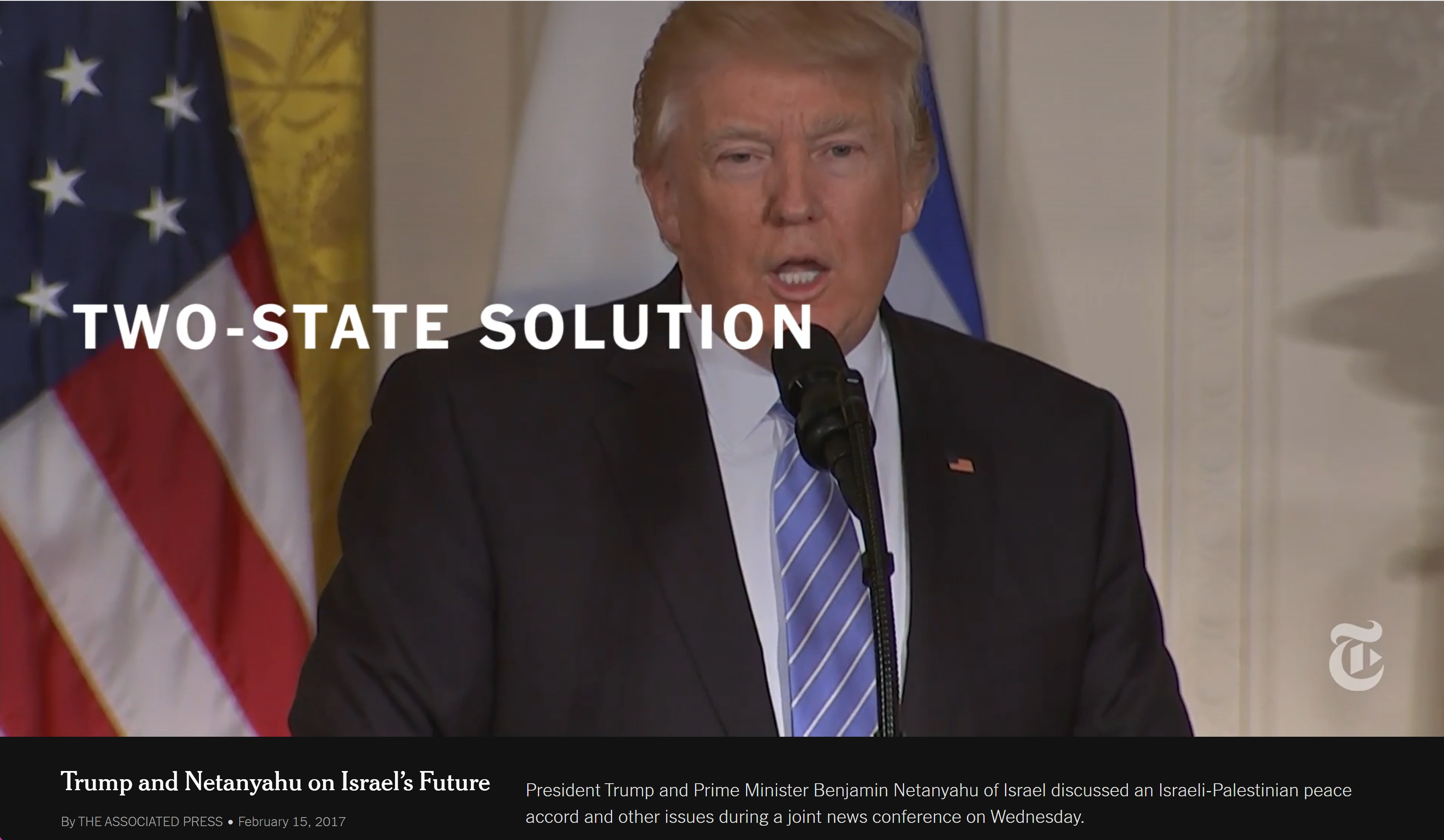
From Stunning Victories to Shocking Defeats: 1973, the Intifadas, and October 7th
Israel’s history is punctuated with extraordinary victories that later get erased by inconceivable defeats. In the 1967 war, Israel quadrupled the land mass under its control. It took the much-coveted holy city of Jerusalem, the West Bank, the Gaza Strip, the strategic Golan Heights overlooking Damascus, secured a foothold on the east bank of the Suez Canal, and got hold of Sinai’s oil and gas riches; and all that in just six days.
Israel then wagered that the Arabs would not dare attack it again thanks to its air superiority, the 70-foot sand barrier it erected to block the Egyptians from charging across the canal, and the destruction of any remnants of Arab self-confidence.
Yet, on October 6, 1973, a surprise attack from Egypt and Syria came just six years after the Six-Day War. Then, to Israel’s surprise, it turned out that the Arabs had the latest SAMs with the range to deny Israel air superiority, the most technologically advanced anti-tank missiles to debilitate Israel’s armored defense strategy and, as to the “impenetrable” Bar Lev Line that could withstand 12 hours of constant shelling? Well, the Egyptians simply used high-power pumps to create breaches in less than three hours.
Re-enactment of Egyptian soldiers using high-power water cannons to breach the Bar Lev Line on October 6, 1973. [Source: youtube.com]
In 1982, Israel entered Lebanon to expel PLO militias that had been attacking it from there for years. They pounded Beirut so hard, killing thousands of civilians in the process, that at one point even President Reagan felt compelled to demand a stop to the shelling.
The PLO held their ground for two months but then had to accept evacuating Lebanon at the request of their Lebanese allies. A triumphant Israel rejoiced at pushing the PLO over a thousand miles away from its borders, to Tunis.
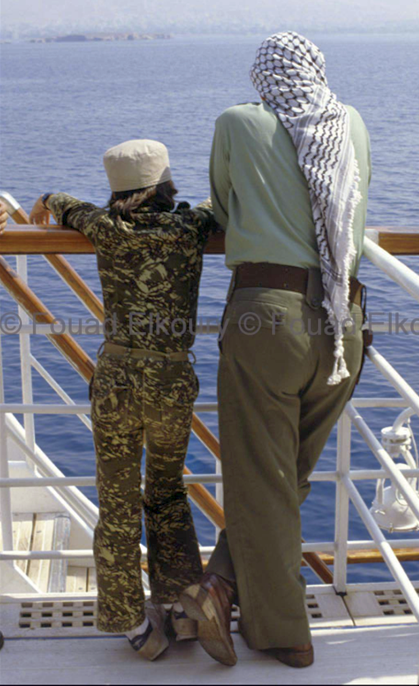
Yet, in 1987, Israel found itself caught off guard when the confrontation with the Palestinians came from within the borders it controlled. It was the Intifada, the uprising of the occupied Palestinian population in the West Bank and the Gaza Strip. This time, the Palestinians neutralized Israel’s overwhelming military advantage by engaging in non-violence and civil disobedience, again, rendering air superiority and armored brigades ineffective.
The world witnessed the greatest power in the Middle East fail to defeat small crowds of unarmed civilians and stone-throwing youth. This time, too, Israel went from having strategically pushed away the Palestinian threat from its borders and the Palestinian cause out of the headlines, to having TV sets across the globe broadcast a brutal military occupation repress unarmed civilians and delegitimize Israel itself.
It made headlines everywhere and Israeli politicians were forced to recognize the Palestinians, for the first time, as a national group with whom to negotiate. Of course, the emergence of Hezbollah in Lebanon during the same period would also contribute to dismantling Israel’s deterrent image, but that’s a topic for another article.

That recognition coincided with the watershed moment of the fall of the Berlin Wall and the transition into a unipolar world under a pax Americana.
The U.S., having ousted Saddam from Kuwait with the support of most Arab countries, stewarded a peace process to bring an end to the turmoil that had plagued the region for four decades.
While the Oslo Accords started with great promise and enthusiasm, the changes on the ground and the wrenches thrown by spoilers opposed to the accords stalled progress and even got many in both communities feeling buyers’ remorse. It seemed like the peace process was mostly a process with no peace.
After seven years of “peace processing,” the Israeli settlement population in the West Bank doubled, and the Gaza Strip was all but completely severed from it geographically, politically, and even socially.
A last-ditch attempt at bridging differences in the Camp David talks of 2000 exposed how far both parties were in what they were willing to accept as a compromise. The Palestinians, already seething with how the promise of an independent state became steadily more distant as the Israeli occupation entrenched itself further, erupted in a second Intifada.
This time, with bullets rather than stones. This anger had been simmering throughout the 1990s, but to Israelis, Palestinians seemed “under control.” As alluded to in my previous article, Israel mistook Palestinians’ relative passivity for acquiescence, and superficial quiet for real stability.
Alas, the October 7th attack did not veer from the script. It was the latest iteration of this cycle where Israel’s hubris breeds complacency and impaired vision. Israel believed it had contained the Gaza Strip after its withdrawal in 2005. They surmised that a state-of-the-art billion-dollar high-tech barrier and 24/7 surveillance of an area half the size of New York City made for an impregnable security cordon.
Yet, in a little more than six hours, a militia, not even a full-fledged country, that they had besieged for more than 15 years and having “mowed the grass” four times already,[2] managed to inflict the greatest loss of life for Jews in one day since the Holocaust.
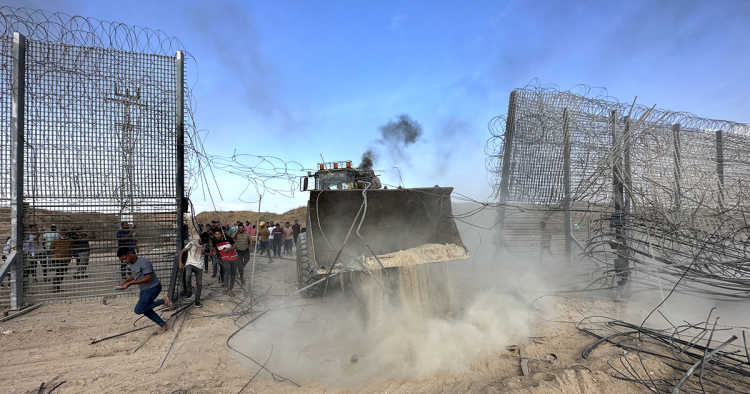
To say that the event was triggering to the entire Israeli society would be an understatement. After 75 years of progressively growing stronger while weakening and sometimes coopting its adversaries, the Jewish state failed to protect Jews when that was its chief raison d’être. The scale of Hamas’s attack was not just militarily shocking; it was psychologically devastating.
It exposed the extent to which all Israeli political, military and intelligence bodies completely underestimated them. It was worse than 9/11 when U.S. agencies didn’t share information that they had already collected.
In Israel’s case, intelligence about Hamas’s preparations for a massive attack was already being circulated. However, they all believed that Hamas could not pull it off. Hence, the collective psychosis that gripped Israeli society demanding the flattening of Gaza.
Israelis’ confidence in their military and security prowess got shaken to its core, especially because it came one day after the 50th anniversary of the biggest scare Israelis had in their lives, the 1973 war, the only time Israeli politicians actually discussed the use of nuclear weapons.[3] It is one thing to fail to protect your citizens; it is something entirely different to discover that you actually have no idea how to do it.
In fact, one of the key changes made due to the intelligence failure then was to create “devil’s advocate” roles precisely to counter confirmation bias.
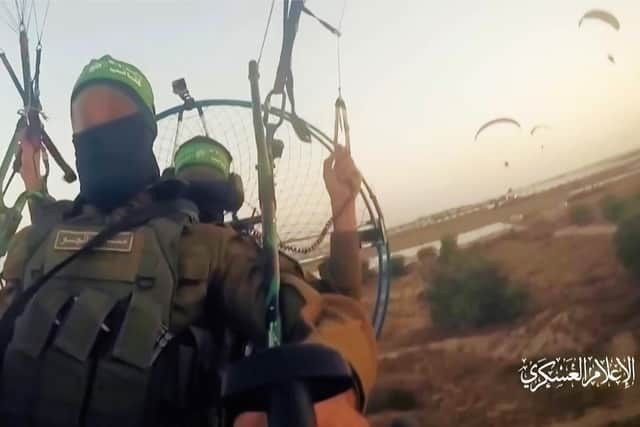
Power, Propaganda and the Illusion of Permanence
This cycle is not unique to Israel. It is the fate of every dominant power that mistakes control for permanence.
Nazi propagandist Joseph Goebbels once declared that a lie repeated often enough becomes the truth. But he left out the other half of the equation: eventually, the lie becomes the liar’s truth as well. The powerful begin to believe their own narrative so deeply that they fail to prepare for the day when reality breaks through.
Israel’s decades of suppressing Palestinian perspectives have produced precisely this effect. For so long, the narrative of Israel as a small democracy fending off existential threats was repeated that Israeli leaders internalized it. They stopped seeing Palestinians as capable adversaries with political agency. They conflated quiet with consent, dominance with legitimacy, and victory with annihilation of the other side.
But history shows that suppression breeds resistance, not erasure. The more a population’s voice is denied, the more explosive it becomes when finally expressed.
Here we reach a deeper irony. In Arabic, the word for human—insan— derives from nisyan which means “forgetfulness.” Humanity’s condition, in this linguistic framing, is to forget. And forgetfulness is precisely what afflicts the powerful.
Empires forget that their dominance is temporary. They forget that silence does not mean consent. They forget that even the strongest military cannot erase the political will of a people determined to resist.
Israel’s leaders, like the leaders of empires before them, act as though their dominance is eternal.
But every shock—from the 1973 war to the intifadas to October 7—reminds them that what seems permanent is fragile. Their mistake is not just strategic; it is existential. They forget that to be human is to resist domination, and that Palestinians are no exception.

An Artificial Quiet That Shrouds Seething Embers
The suppression of Palestinian voices creates an artificial quiet, an appearance of calm maintained through overwhelming force, censorship and economic dependency.
Yet, beneath the quiet on the surface, red-hot embers seethe, what James C. Scott calls the “hidden transcript.”[4]
That which is not said when the others, those with a different status, power or privilege, are in the room.
With every peaceful protest crushed with live ammunition, every journalist self-censoring to keep their job, every academic choosing their words cautiously to stay relevant, and every aspiring politician advocating the policy that safeguards their position, that hidden transcript expands.
Palestinians learned the hard way that world powers pay attention only when their interests are threatened or those who matter are endangered. Powers impervious to moral pleas or non-violence, but predictably responsive to violence and extortion.
As I explained in my previous article, Palestinians are consistently pragmatic: They pursue whatever method seems most effective.[5]
When negotiations yield accelerated settlement expansion, non-violent marches are met with sniper fire, and restrictions mushroom at a faster pace than you can adjust to, the conclusion becomes obvious.
Israeli leaders mistake the absence of visible resistance for pacification. But each eruption reminds them of how fragile that quiet really was. And with every round, Israel’s sense of control erodes further, while Palestinians’ confidence in their own resilience grows.
The erosion of Israel’s narrative is not confined to the Middle East. Globally, more and more journalists, academics and even politicians are recognizing the imbalance. Social media have accelerated this shift, allowing Palestinian voices to bypass traditional gatekeepers. Images of bombed-out homes and civilian casualties circulate widely, undermining official narratives in real time.
When the taboo breaks, the effect is dramatic. Western publics, long shielded from Palestinian perspectives, suddenly encounter them without filters. The reaction is not mild sympathy but—often—outrage at how long such realities were hidden. This is why Israel finds itself increasingly isolated in global opinion, even as Western governments continue to provide military and diplomatic cover.
The long-term cost of narrative suppression is thus isolation. By silencing Palestinian perspectives, Israel ensured that, when those perspectives finally surfaced, they would be heard with raw intensity.
Pro-Palestinian demonstrators march in Washington on January 13, 2024. [Source: apnews.com]
Conclusion: Remembering What the Powerful Forget
The cycle is clear: Suppression breeds backlash; over-confidence leads to surprise; and power mistaken for permanence becomes fragility.
The pro-Israel lobby may succeed in silencing Palestinian voices in the short term, but the cost is that, when reality breaks through, it does so with overwhelming force. The artificial quiet collapses, and Israel is left astonished at the scale of opposition.
This is not just Israel’s story: It is the story of every dominant power in history. Empires forget that their dominance is temporary. They forget that humans—insan—are defined by forgetfulness, but also by resilience.
Palestinians, silenced for decades, have not surrendered to the dominant narrative. Their voices, suppressed in public arenas, have only grown louder, clearer and more compelling in the bleachers. When they break through to center stage, they remind the world that the human spirit is impervious to destruction. A people’s longing for dignity and freedom does not wither with time. And a story that needs to be told cannot be muffled forever.
Until Israel and its advocates internalize this cosmic rule, the cycle of violence will persist: from suppression, to eruption, to shock, and then attrition. The tragedy is that it does not have to be this way. But as long as forgetting defines the powerful, history will repeat itself—again and again.

Watch Reel Bad Arabs: How Hollywood Vilifies a People, by Jack Shaheen https://www.imdb.com/title/tt0948465/?ref_=nv_sr_srsg_0_tt_4_nm_4_in_0_q_reel%2520bad , and The Occupation of the American Mind: Israel’s Public Relations War in the United States, by Loretta Alper and Jeremy Earp https://www.occupationmovie.org/ ↑
Israel’s “mowing the grass” (Hebrew: כיסוח דשא) policy refers to a military strategy of periodic, large-scale attacks on Gaza, intended to weaken Hamas and other militant groups but not to destroy them completely. The strategy, used for decades prior to the October 7, 2023, attack, operated on the assumption that a long-term political solution was unachievable and that periodic conflict was inevitable. ↑
The Times of Israel, “‘Dayan pushed PM Meir to consider using nuclear weapons in 1973 war’” October 3, 2013, https://www.timesofisrael.com/dayan-pushed-pm-meir-to-consider-using-nuclear-weapons-in-1973/ Accessed August 25, 2025. ↑
James C. Scott, Domination and the Arts of Resistance: Hidden Transcripts (New Haven, CT: Yale University Press, 1990). ↑
Nizer Farsakh, “What U.S. Foreign Policy Experts Do Not Get About Palestinian Politics,” CovertAction Magazine, June 20, 2024, https://covertactionmagazine.com/2024/06/20/what-u-s-foreign-policy-experts-do-not-get-about-palestinian-politics/ ↑
CovertAction Magazine is made possible by subscriptions, orders and donations from readers like you.
Blow the Whistle on U.S. Imperialism
Click the whistle and donate
When you donate to CovertAction Magazine, you are supporting investigative journalism. Your contributions go directly to supporting the development, production, editing, and dissemination of the Magazine.
CovertAction Magazine does not receive corporate or government sponsorship. Yet, we hold a steadfast commitment to providing compensation for writers, editorial and technical support. Your support helps facilitate this compensation as well as increase the caliber of this work.
Please make a donation by clicking on the donate logo above and enter the amount and your credit or debit card information.
CovertAction Institute, Inc. (CAI) is a 501(c)(3) non-profit organization and your gift is tax-deductible for federal income purposes. CAI’s tax-exempt ID number is 87-2461683.
We sincerely thank you for your support.
Disclaimer: The contents of this article are the sole responsibility of the author(s). CovertAction Institute, Inc. (CAI), including its Board of Directors (BD), Editorial Board (EB), Advisory Board (AB), staff, volunteers and its projects (including CovertAction Magazine) are not responsible for any inaccurate or incorrect statement in this article. This article also does not necessarily represent the views the BD, the EB, the AB, staff, volunteers, or any members of its projects.
Differing viewpoints: CAM publishes articles with differing viewpoints in an effort to nurture vibrant debate and thoughtful critical analysis. Feel free to comment on the articles in the comment section and/or send your letters to the Editors, which we will publish in the Letters column.
Copyrighted Material: This web site may contain copyrighted material the use of which has not always been specifically authorized by the copyright owner. As a not-for-profit charitable organization incorporated in the State of New York, we are making such material available in an effort to advance the understanding of humanity’s problems and hopefully to help find solutions for those problems. We believe this constitutes a ‘fair use’ of any such copyrighted material as provided for in section 107 of the US Copyright Law. You can read more about ‘fair use’ and US Copyright Law at the Legal Information Institute of Cornell Law School.
Republishing: CovertAction Magazine (CAM) grants permission to cross-post CAM articles on not-for-profit community internet sites as long as the source is acknowledged together with a hyperlink to the original CovertAction Magazine article. Also, kindly let us know at info@CovertActionMagazine.com. For publication of CAM articles in print or other forms including commercial internet sites, contact: info@CovertActionMagazine.com.
By using this site, you agree to these terms above.
About the Author

Nizar Farsakh is a lecturer at the Elliot School of International Affairs at George Washington University.
Between 2003 and 2008 Nizar advised senior Palestinian leaders including the President, the Prime Minister and various ministries in their negotiations with Israel.
Nizar can be reached at nhfarsak@email.gwu.edu.

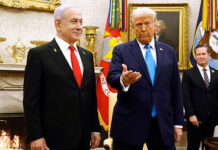
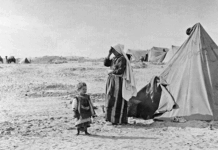
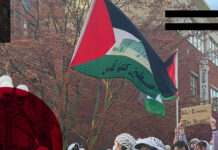
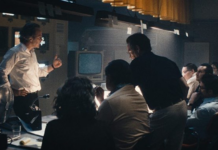

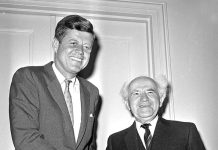


Recently the CBC interviewed many Gazans to ask them how they feel about the new peace plan. Many Gazans consider Hamas to be a horrible terrorist organization and they feel that any alternative would be an improvement over Hamas. But many Gazans are also skeptical of the peace plan feeling that it does not takes the interests and needs of Gazans into account and thus may lead to more problems in the future.